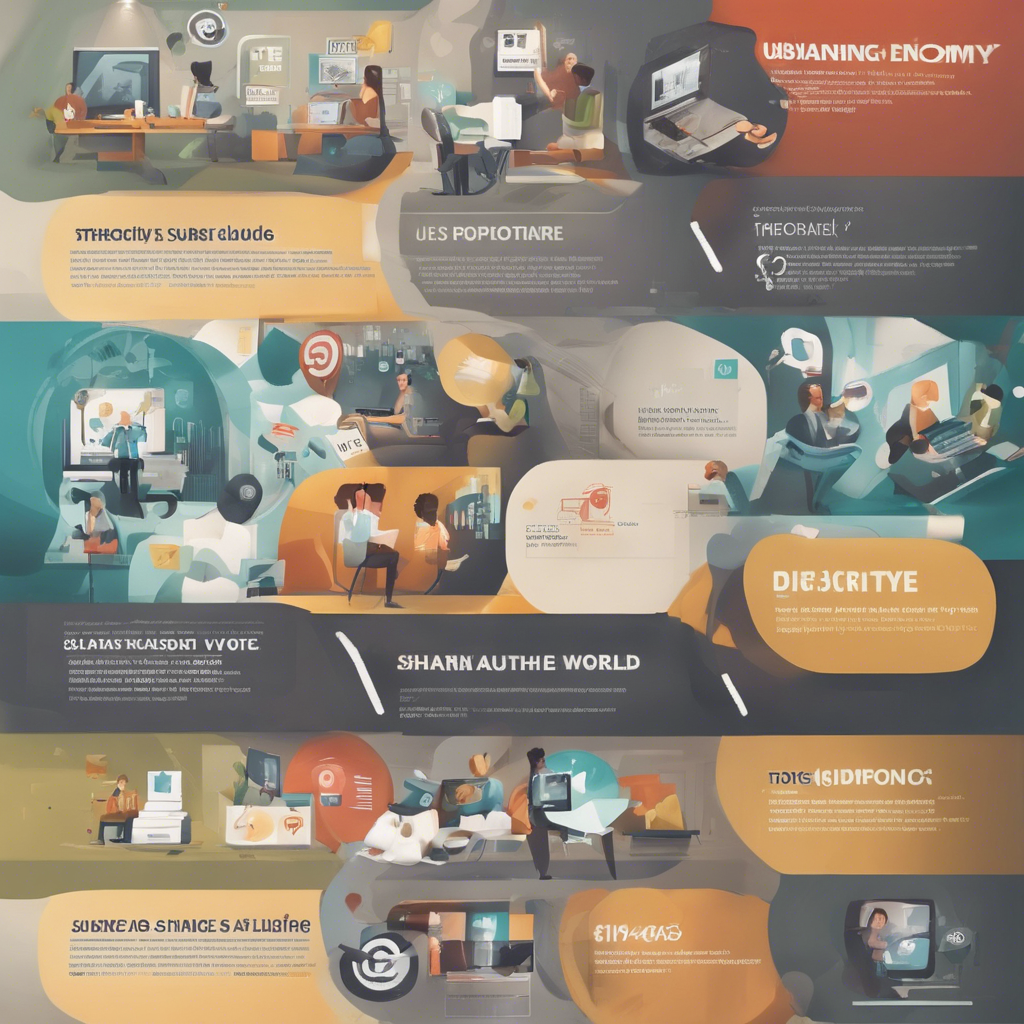
In today's fast-paced world, where convenience often reigns supreme, a silent revolution has been taking place - the emergence of the sharing economy. Unbeknownst to many, this economic model is quietly but significantly reshaping the fabric of our society. The sharing economy is a socio-economic system built around the sharing of resources, goods, and services, facilitated by digital platforms and technology. It encompasses a wide range of sectors, from transportation and accommodation to skills and knowledge exchange.
One of the key aspects of the sharing economy is the concept of access over ownership. Instead of owning assets outright, individuals can now access them as and when needed, leading to more efficient resource utilization and reduced waste. This shift in mindset has not only transformed consumer behavior but has also had far-reaching implications for industries traditionally based on ownership models.
Platforms like Airbnb, Uber, and TaskRabbit have become household names, offering people the opportunity to monetize their underutilized assets or skills. This has created new income streams for individuals and enabled greater flexibility in how people work and live. At the same time, it has raised questions around labor rights, regulation, and the long-term sustainability of the gig economy.
Furthermore, the sharing economy has fostered a sense of community and trust among strangers. By connecting individuals directly, these platforms have enabled people to interact in ways that were previously unimaginable, breaking down barriers and fostering a sense of shared responsibility. This has not only led to more personalized and authentic experiences but has also challenged traditional notions of commerce and social interaction.
As the sharing economy continues to evolve and expand, it presents both opportunities and challenges for society. While it has the potential to promote sustainability, inclusivity, and innovation, it also raises concerns about data privacy, income inequality, and regulatory oversight. Understanding and navigating these complexities will be crucial in harnessing the full potential of the sharing economy and ensuring that its benefits are equitably distributed.
What is the Sharing Economy?
The sharing economy, or collaborative economy, represents a significant shift in how we approach consumption and resource utilization in modern society. This innovative socio-economic system is characterized by the sharing of various resources, including goods, services, and skills, through online platforms that connect individuals and communities. By emphasizing access rather than ownership, the sharing economy promotes a more sustainable and efficient use of resources, reducing waste and environmental impact. One of the key benefits of the sharing economy is its ability to create new economic opportunities for individuals and businesses alike. Through peer-to-peer transactions and collaborative consumption, people can leverage their underutilized assets to generate income or access resources that they may not have been able to afford otherwise. This not only promotes financial inclusivity but also encourages a more equitable distribution of wealth within communities. Moreover, the sharing economy fosters a sense of community and social connection by encouraging collaboration and trust among participants. By sharing resources and engaging in reciprocal exchanges, individuals can build meaningful relationships and strengthen social ties, ultimately contributing to a more cohesive and resilient society. In essence, the sharing economy represents a paradigm shift towards a more sustainable, inclusive, and community-oriented approach to economic activity. By harnessing the power of technology and collaboration, this model has the potential to revolutionize how we consume, produce, and interact with one another, paving the way for a more interconnected and prosperous future.

Reshaping Industries
One of the key ways the sharing economy is reshaping modern society is through its disruption of traditional industries. Take, for instance, the transportation sector. Ride-sharing platforms have revolutionized the way we commute, offering a more cost-effective and environmentally friendly alternative to traditional taxi services. Similarly, accommodation-sharing platforms have transformed the hospitality industry, providing travelers with a wider range of options and empowering individuals to monetize their unused spaces.
Empowering Individuals

The sharing economy empowers individuals by enabling them to monetize their assets and skills. From renting out spare rooms on accommodation-sharing platforms to offering freelance services on gig economy platforms, people can now generate income in ways that were previously unimaginable. This empowerment fosters entrepreneurship and financial independence, driving economic growth at the grassroots level.
Environmental Impact

Beyond its economic implications, the sharing economy also has a significant environmental impact. By promoting the sharing of resources, it contributes to the reduction of waste and carbon emissions associated with production and consumption. Through collaborative consumption, individuals can collectively reduce their carbon footprint, making a positive contribution to sustainable living.
The Future of the Sharing Economy
As we look to the future, the sharing economy is poised to play an even greater role in shaping modern society. With advances in technology and evolving consumer preferences, we can expect to see further growth and diversification within the sharing economy. From peer-to-peer lending to co-working spaces, the possibilities are endless.
In conclusion, the sharing economy is not just a passing trend; it is a fundamental shift in the way we interact with each other and the resources around us. By promoting collaboration, resource efficiency, and community building, it has the potential to create a more sustainable and inclusive society. So, the next time you choose to share rather than own, remember that you are not just participating in a transaction - you are contributing to a larger societal transformation.
Join the sharing economy revolution and be a part of reshaping the modern world!
By embracing the sharing economy, we are not only redefining how we consume goods and services but also reimagining the very essence of community and sustainability for generations to come. Let's continue to share, connect, and build a more inclusive and prosperous society together.
Comments